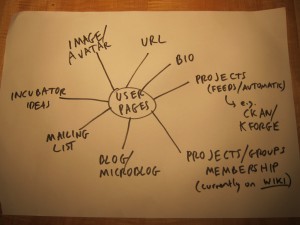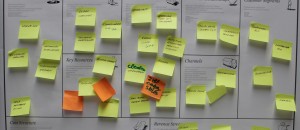
Why the Traditional Agency Model Fails in Digital
Why the traditional agency model fails in digital
In the not too distant past digital agencies and their offline counterparts, marketing or advertising agencies, kept well apart. In fact digital was seen as a bit of a poor relation, with web teams sub-contracted as necessary by the traditional print agencies.
Then the ad agencies realised that the web offered a genuine, lucrative revenue stream and soon they founded digital spin-offs (they could never see at that point that online and offline could be integrated).
But since it was the traditional agencies with the pedigree, pre-existing market share and, more importantly, money they naturally took the lead. But the mistake they made was treating digital like offline media but on the web.
Offline way of working
They, quite understandably, imposed their way of working on digital teams. I remember working for one agency who insisted that web page designs were printed off and filed in print-style job bags (much to the chagrin of the geeks). And this naturally included their approach to account management.
Suddenly account managers were expected to be managing website builds in the same way as they managed a print job, and this practice has continued to this day in many agencies. Usually with varying degrees of poor results.
The simple fact is that digital is its own, unique medium.
Offline vs. online
Print is much easier to sell because they technology is in the background of the end product. You don’t need to know how a Heidelburg press works to manage a poster campaign. You do need to understand digital principles to manage a website build.
Simply put there are many more variables involved in digital. This will inevitably mean that digital account managers are soon swamped. How can they review wireframes, develop test scenarios, produce project plans and the myriad of other elements that go into a digital project, at the same time as managing their client and growing the account? Yet there are still plenty of agencies who think this is possible, without regard for inevitable chaos it causes!
If you want to compare digital with an offline medium probably the best comparison is TV. In television programme development is managed by a producer who understands the complexities of the medium. They control the whole process from script to screen. A similar process should be adopted for digital.
Successful digital model
The model successful digital and integrated agencies alike adopt is one where once the work has been won by an account manager it’s delivery becomes the responsibility of a project manager or producer. In most cases the project manager will have been a developer so they understand the nuances of a digital build.
The real difficulty of this approach lies in account managers relinquishing control to a project manager. This can only be achieved if there is strong buy in from management who accept that overloading account handlers is a poor business decision.
In summary
- Offline agencies dominate the marketing and advertising sector
- Most have embraced digital but often they see it in the same way as offline media
- Traditional account handlers are unable to manage their clients and a digital project at the same time
- Agencies need to appreciate the benefits of having specialist digital producers or project managers on staff.




